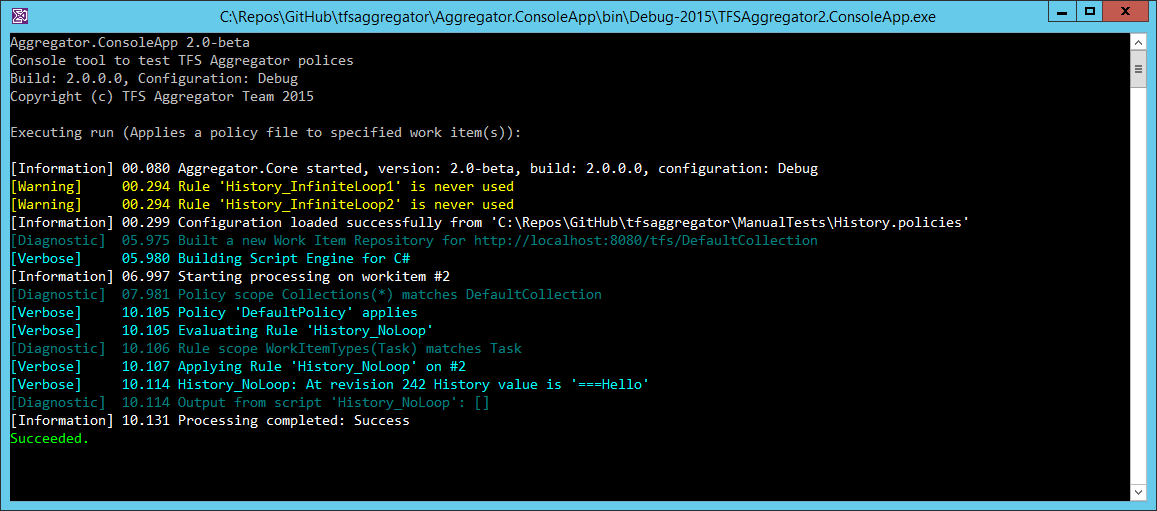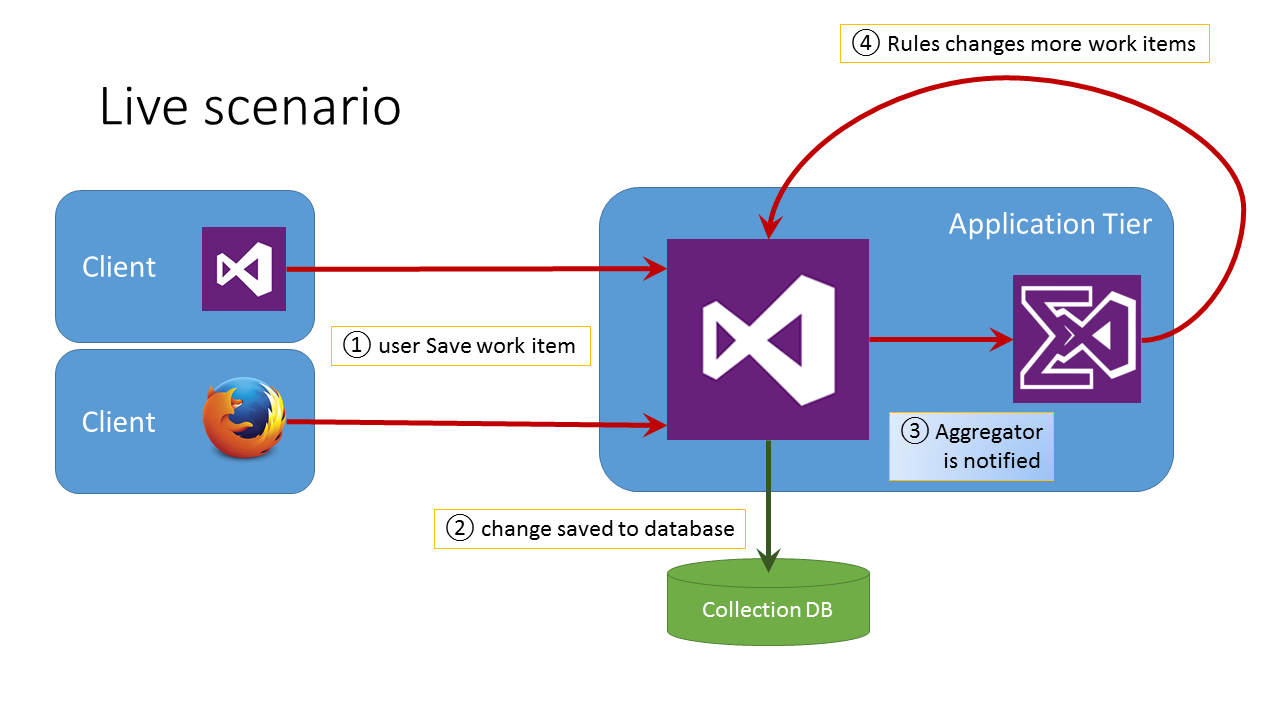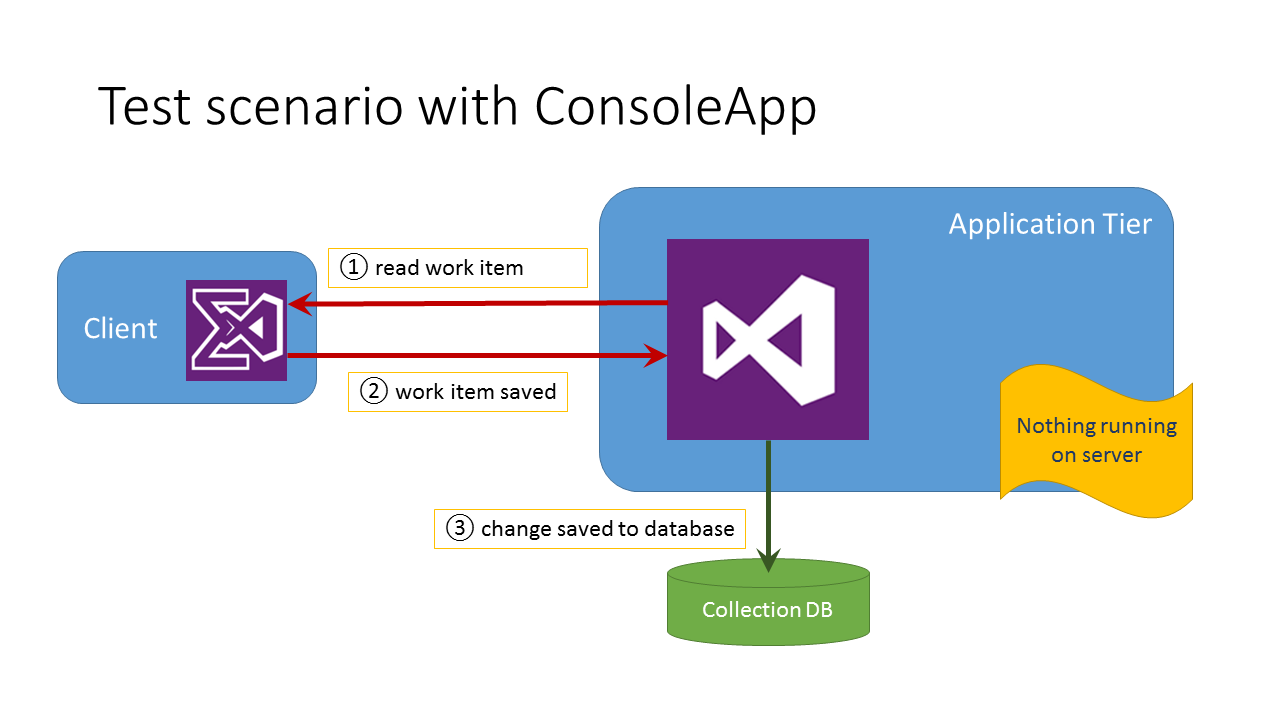The TFSAggregator2.ConsoleApp.exe command line tool is extremely useful to test and validate
your policy files before applying to TFS.
BEWARE Any changed workitem is written to TFS database! Use a test TFS instance.
Syntax #
TFSAggregator2.ConsoleApp.exe <command> [<options>]
The only supported command is run.
If you launch the command without arguments, it will display an help screen.
Options #
The available options are:
| Option (short form) | Option (long form) | Usage |
|---|---|---|
-h | --help | Shows help message and exit |
-f | --policyFile=VALUE | Policy file to test |
-c | --teamProjectCollectionUrl=VALUE | TFS Team Project Collection Url, e.g. http://localhost:8080/tfs/DefaultCollection |
-p | --teamProjectName=VALUE | TFS Team Project |
-n | --id=VALUE[,VALUE...] <br> --workItemId=VALUE[,VALUE...] | List of Work Item Ids |
-l | --logLevel=VALUE | Logging level (critical, error, warning, information, normal, verbose, diagnostic) |
The log level specified on the command line takes precedence over the level written in the policy file.
Sample invocation #
TFSAggregator2.ConsoleApp.exe run --policyFile=samples\TFSAggregator2.ServerPlugin.policies --teamProjectCollectionUrl=http://localhost:8080/tfs/DefaultCollection --teamProjectName=TfsAggregatorTest1 --workItemId=42 --logLevel=diagnostic
Sample output #
The output from the previous invocation should be similar to the following screenshot.

Differences from TFS Plugin #
Here are some major behavioral differences.
- All logging is redirected to the console.
- If a work item is changed by the rule, it will be processed again by the tool to emulate TFS behavior.
- The order of processing may be different from TFS.
- TFS may use different application tier servers to process rules.
The following diagrams may help understand the control flow.
 Normal flow using plugin
Normal flow using plugin
 Development flow using Console Application
Development flow using Console Application